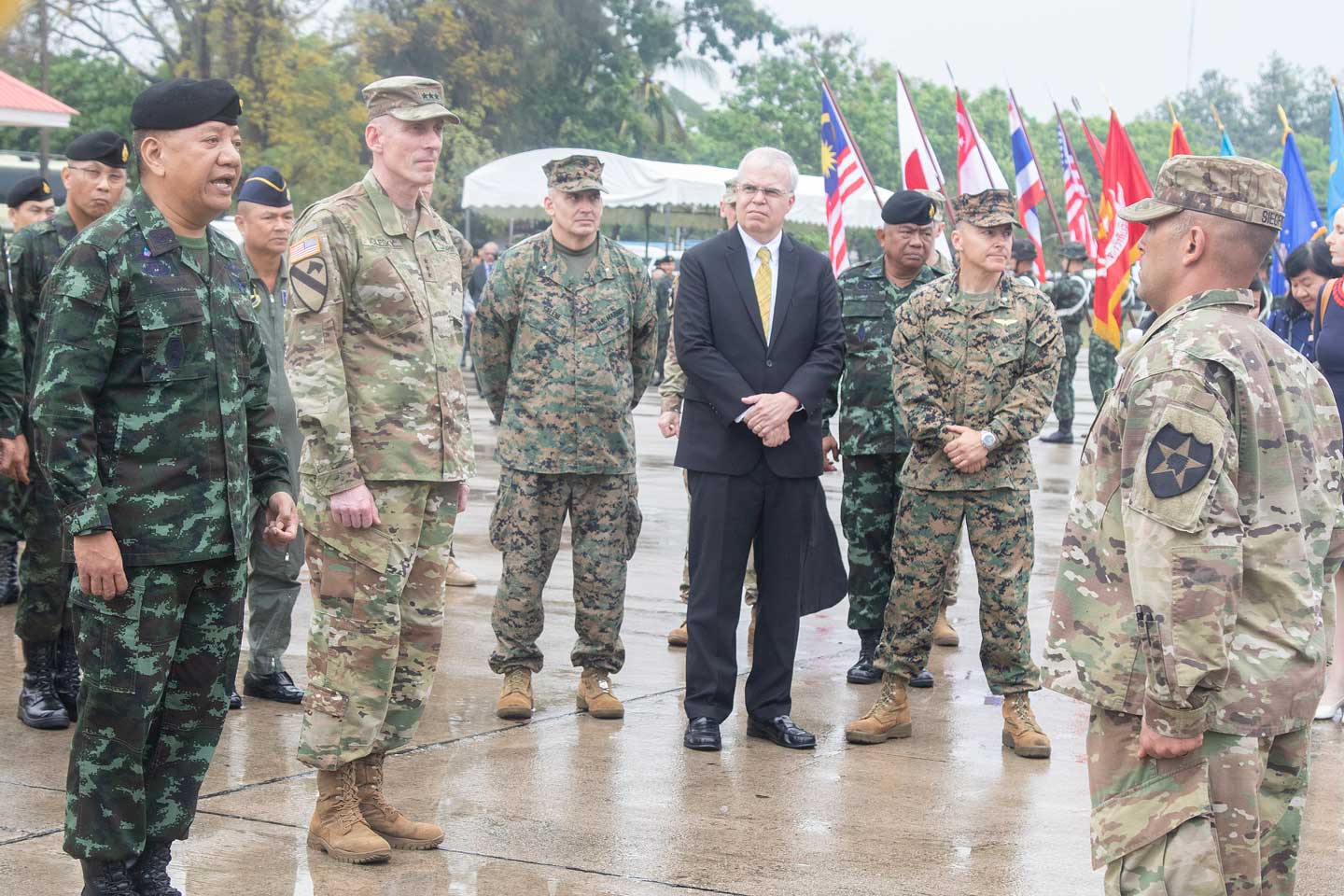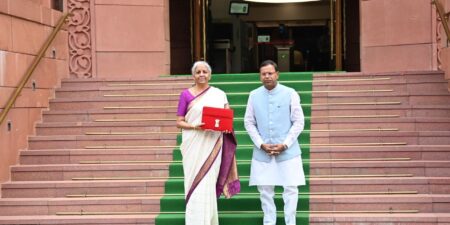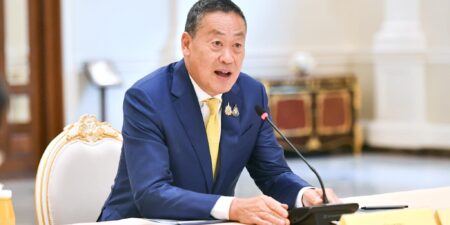BGA Senior Director Desmond Walton recently participated in a January 19 event on understanding Thailand’s protest movement. The event, hosted by the think tank U.S. Institute of Peace (USIP), featured a range of perspectives on the dynamics underlying the protests that have been rocking the Southeast Asian state and how the U.S. government might respond to the ongoing events in one of its five Asian treaty allies.
The discussion, moderated by USIP Senior Expert for Southeast Asia Brian Harding, was focused around the theme of “Defiance and Democracy: Understanding the Thai Protest Movement,” featuring remarks by Walton along with Rattaphol “Ahn Onsanit”, the Thai service chief of Voice of America, Penchan Phoborisut, an assistant professor at California State University, Fullerton, and Jonathan Pinkney, a senior researcher for nonviolent action at USIP.
In his remarks, Walton, who served for decades in the U.S. Army and held various key policy positions previously including director for Southeast Asia at the U.S. National Security Council and U.S. defense attaché in Bangkok, said the path to advancing U.S. relations with Thailand under the new administration led by U.S. President Joseph R. Biden rests on an understanding of the broader context for policymaking in both the United States and Thailand as well as the various areas in the multifaceted relationship.
On the former, Walton emphasized that the Biden administration would face a number of challenges both at home and abroad – be it restoring U.S. economic strength at home or contending with a challenging Asian security landscape with threats from China and North Korea. “I don’t think it’ll be a news flash for anyone to say that the incoming Biden administration faces a wanton array of global challenges and challenges at home,” Walton said.
With respect to improving U.S.-Thailand relations, Walton said that the agenda should begin with a recognition of the fact that though the relationship has been characterized as not fully living up to its potential on some of its four key pillars – security, economic, people-to-people and politics – overall, the relationship has been “relatively well-performing, and has been for decades.”
To improve on ties further, he suggested both sides double down on strengths, including on the security side, while also finding creative mechanisms to increase economic and people-to-people through various ways, be it new trade pacts or the establishment of new American centers on university campuses to foster education among Thai youth.
On navigating politics, which he emphasized has been an enduring challenge for U.S. policy, he suggested Washington carefully “thread the needle” and “avoid overreach” as Thailand continues to manage its own domestic challenges, relying on “informed views from our teams on the ground.” He also counseled not overemphasizing the China aspect of U.S.-Thailand relations, focusing instead on what Washington does well and Thailand’s importance for its own sake. That sense of perspective, in his view, would both help right-size the China challenge within the centuries-old U.S.-Thailand relationship while also ensuring that the United States is seen as treating its allies and partners on their own terms rather than as mere pawns in a broader geopolitical rivalry.

Senior Advisor
Des supports BGA clients around the Asia-Pacific region by bringing his extensive regional expertise to bear on BGA’s analysis of political and economic developments across Southeast Asia, as well as the Asia-Pacific energy, defense and security sectors. A retired U.S. Army foreign area officer (FAO) with extensive experience in national security policy, defense cooperation and Southeast Asia, Des’ final assignment in the army was serving as the U.S. defense attaché in Bangkok from 2012 to 2015.In this capacity, he was responsible for all Department of Defense programs and activities, including foreign military sales. From 2009 to 2011, Des was the ...
Read More


























